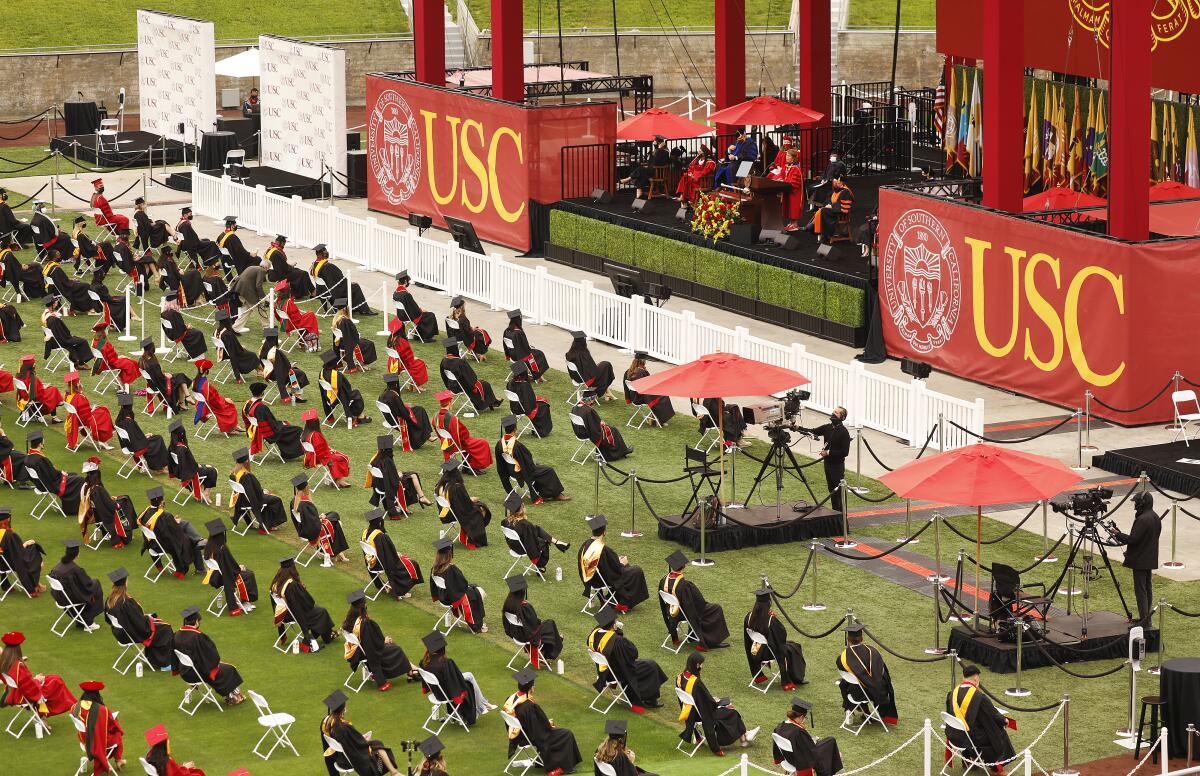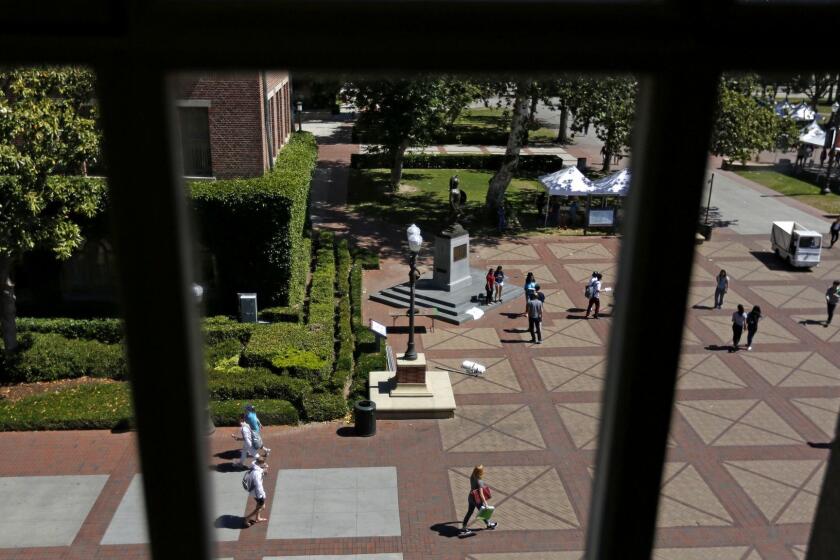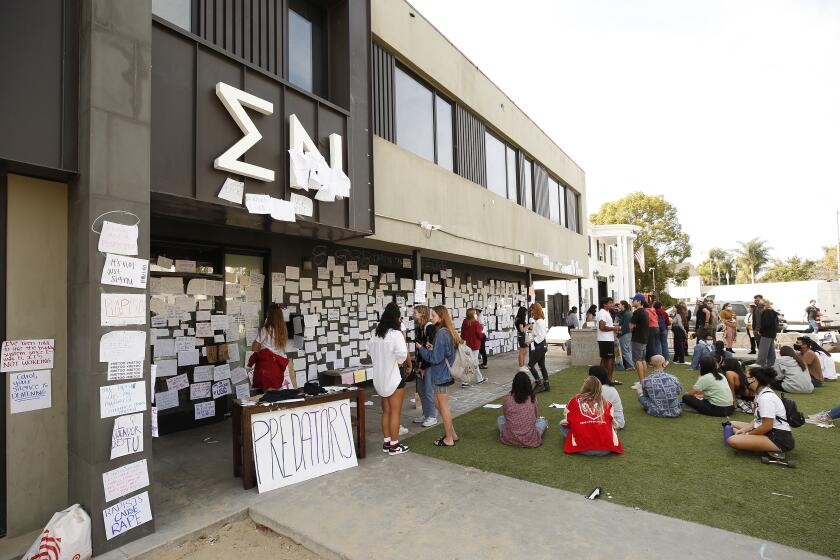Editorial: USC tarnishes its reputation again, this time with for-profit recruitment tactics

- Share via
It can be hard to keep up with the scandals and missteps at USC. In just the last few weeks, there’s been a flurry of bad news emanating from the prestigious private university. For now, let’s zero in on the Suzanne Dworak-Peck School of Social Work, where the troubles are endemic to USC’s culture but also speak to deeper problems in higher education.
Over the last decade, USC partnered with for-profit company 2U Inc. to develop its online social work master’s program and recruit students for the two-year degree, which last year cost $115,000. USC developed demeaning marketing profiles of potential students, targeted low-income students of color and recruited candidates with low grades to meet enrollment targets, according to a Wall Street Journal report.
Enrollment boomed but the fallout tarnished the program’s reputation and left graduates with staggering debt.
Confronted by scandal after scandal, University of Southern California leaders have followed a familiar pattern: Express shock and disappointment, call for an investigation to root out the school’s failings — and then keep mum on the findings of those investigations.
In a comparison with other master’s degree programs at top-tier U.S. universities, the USC social work degree had one of the worse combinations of debt and earnings, according to the Journal’s analysis. Recent USC social work graduates who took out federal loans borrowed a median of $112,000; half of them were earning $52,000 or less two years later.
The pursuit of growth didn’t help the School of Social Work either. Though online education was expected to bring lots of new tuition dollars without the expense of building new dorms or classrooms, the arrangement gave 60% of the online tuition to for-profit 2U. By 2019, the school was facing serious budget woes and staff cuts, The Times reported at the time.
The School of Social Work’s financial problems may have fueled another scandal. Last month, a former dean of the school, Marilyn Louise Flynn, was indicted along with Los Angeles City Councilman Mark Ridley-Thomas on 20 criminal counts, including bribery and conspiracy. Flynn is accused of conspiring with the then-L.A. County supervisor in a scheme to steer county contracts to the school in return for admitting Ridley-Thomas’ son into the master’s program with a full-tuition scholarship and a paid professorship. The school was facing a multimillion-dollar deficit at the time, which threatened the school’s viability and the dean’s position, according to the U.S. attorney’s office.
USC is not alone in seeing dollar signs in master’s degrees. Fueled by generous federal loans for graduate studies and education inflation, elite universities are offering extraordinarily expensive master’s degree programs in which students are unlikely to earn enough after graduation to pay down their student loans. The schools get their tuition, and taxpayers are on the hook if students default on their loans.
The latest scandal, with allegations of rape at the Sigma Nu fraternity house, arises after apparently willful ignorance by a new regime of campus leaders.
What makes this especially galling is that even while the school was sticking many financially strapped students with hefty debt for their social work degrees, it was currying favor with U.S. Rep. Karen Bass, whose Los Angeles district encompasses the university, by giving her a full scholarship. It raises the question of priorities.
USC officials said they’ve made changes to the School of Social Work over the last three years to address the concerns raised in the Times and Journal reports. The school is redesigning the program to raise admissions requirements and reduce the number of required classes, which would cut tuition by 25% to a still-pricey $84,000.
Over the years, USC has climbed in the national rankings of colleges and universities, raised billions of dollars, built big new buildings and vastly expanded its research. Yet along the way, the university has too often lost its way, putting fundraising, prestige and rankings above the fundamentals of academia and the well-being of its students. It shouldn’t take a scandal or an expose for USC — and, frankly, other universities — to confront the question of whether they have sacrificed their values in pursuit of growth and tuition dollars.
More to Read
A cure for the common opinion
Get thought-provoking perspectives with our weekly newsletter.
You may occasionally receive promotional content from the Los Angeles Times.












